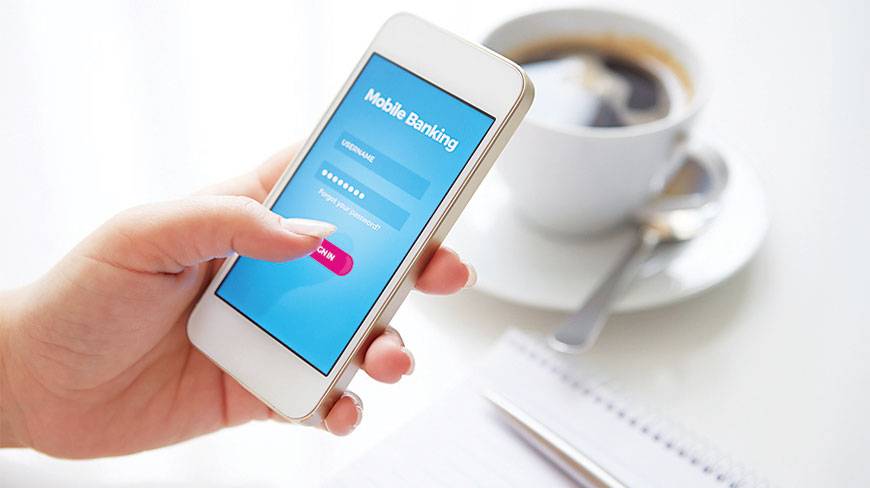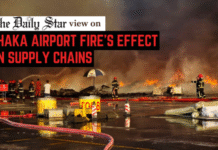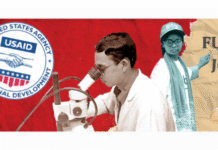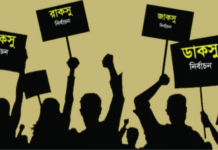Every few years, somewhere between 10%-30% of the world’s poorest households manage to escape poverty. At the same time, a comparable number slip below the poverty line. Often, all it takes is one sudden expense — a hospital bill or a failed harvest — to break a family’s financial stability.
To end this zero-sum balance, we need to make these unexpected expenses endurable. We need to put poverty at a distance rather than allow it to lie in wait around every next corner. We need to give people access to the financial tools that allow them to save, budget, and join the formal economy — in effect, helping people escape poverty and stay out of poverty for good.
Bangladesh should be very proud of all the work it has done to further the cause of financial inclusion, especially by expanding the reach of digital financial services. In bKash, it already has one of the world’s most well-known mobile money providers. And the country’s national bank is now drafting mobile financial guidelines which will define how new providers can enter the market.
In the social sector, Dhaka-based BRAC, the largest NGO in the world, will soon digitise their operating transactions — primarily repayment of microfinance loans to their 5.5 million clients around the globe — and the Business for Social Responsibility, a global non-profit business network, is also working with 175 different employers to digitise wage payments, predominantly in Bangladesh’s sizable garment industry.
Digitising wages and payments is a fantastic first step in introducing low-income populations to banking and can have a transformative effective on the greater financial landscape, particularly if sectors, like the government follow suit. According to the 2015 Global Findex, digitising payments to the 160 million unbanked adults who currently receive government transfers or wages in cash, would reduce the global unbanked population by 8%.
This is all tremendously exciting. The prospect of new digital finance providers and hundreds of thousands of new digital bank accounts bodes extremely well, not only for the unbanked people of Bangladesh, but for the overall economy of the country. When transactions that previously circulated outside the formal economy are channeled within it, it creates new relationships and opportunities among users, providers, and commercial entities.
Impoverished customers gradually build up equity and financial skills, and this allows them to engage even more with the commercial and financial outlets surrounding them. In tandem, these outlets also grow and evolve, and prosperity as a whole increases.
In other words, everyone benefits from an economy that includes everyone. At the Bill & Melinda Gates Foundation, where I lead the Financial Services for the Poor program, we believe that digital financial services are the best way to create that vibrant economy.
Before my current position, I lived and worked for nearly 20 years in Africa and Eastern Europe, helping to bring innovative financial services to emerging markets and poor communities.
During this time, I learned that savings is one of the most critical factors in a person’s potential to emerge from poverty. But when you exist in an entirely cash-based economy, as is the case for 2 billion poor people around the world, saving is exceedingly difficult.
Access to and use of a formal account or wallet, however, can change this. Saving, budgeting, and planning for the future become easier.
In fact, a number of rigorous academic studies have shown the ripple effect savings can have on a person’s well-being. When the bank I ran in Malawi provided savings accounts to farmers, helping them set aside funds from one season to the next, we saw a 35% increase in fertiliser use and a 17% increase in disposable income.
But to provide these services at scale, low-income families require products that meet their day-to-day needs, with small payment sizes and safe ways to reserve money for purposes like education and important life events. Wealthy households live their financial lives embedded in a digital financial system that “greases the wheels” of their economic activity by making it cheap and easy for them to transact. Their money sits in a virtual account, where it can be transferred with the click of a button. In contrast, 2 billion people — most of them poor — are cut off from that system.
They store and transfer value through physical assets, such as cash, jewelry, or livestock. This cash-digital divide creates two mutually reinforcing inequities in the financial lives of poor households.
First, it imposes direct costs on poor households, making it costlier and riskier for them to perform basic financial activities, from sending wages to one’s family to financing an investment in fertiliser. Second, it perpetuates the poor’s marginalisation from the formal economy by making it prohibitively costly for utility companies, banks, insurance companies, and other institutions to transact with them.
By going digital, we can help lessen that divide. We can cut transaction costs by as much as 90%. There is also the advantage of reach: Whereas operating a traditional bank branch is impractical in the rural and remote areas, where the poor often live, 90 % of the world’s poor — 94% in Bangladesh — are covered by a mobile signal. Put simply, digital will take banking to people and places it has never been before.
However, as critical as it is to increase the availability of digital bank accounts, availability does not always equal adoption. For true success in financial inclusion, we need to establish an environment where, for example, it doesn’t make sense for people to cash out their digital wages as soon as they are received. We need merchants and services that accept digital payments. Digital money has to be a convenient and commonly supported way of buying goods, paying school fees, sending money to family members, and performing the other transactions central to the lives of poor people. But it can be done, and we’re excited to see Bangladesh joining this movement.
From microfinance to mobile money, Bangladesh has proven time and again that the right services, tailored to the legion of poor and eager customers, can become part of a new way of life.
Organisations such as BSR and BRAC are adding vital momentum to the transition to digital. By creating an environment where digital financial services can flourish, in Bangladesh and beyond, we can help the world’s 2 billion unbanked people emerge from poverty, and help create local economies that include and benefit everyone.
Source: Dhaka Tribune










